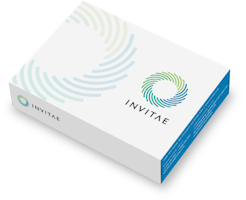
Invitae Metabolic Non-Immune Fetal Hydrops Panel
Test code: 06229 •
Test description
The Invitae Metabolic Causes of Non-Immune Fetal Hydrops Panel analyzes up to 53 genes that are associated with metabolic conditions that may include a prenatal onset presentation of fetal hydrops (hydrops fetalis), edema, or ascites. Nonimmune hydrops fetalis (NIHF) comprises the subgroup of cases not caused by red cell alloimmunization. Genetic testing of these genes may confirm a diagnosis and help guide treatment and management decisions as many metabolic disorders are treatable. This test is specifically designed for metabolic Mendelian disorders known to be associated with fetal hydrops and is not appropriate for hydrops due to red cell alloimmunization, infection, chromosomal abnormalities, hematologic disorders, or malformations.
Ordering information
Turnaround time:
10–21 calendar days (14 days on average)New York approved:
YesPreferred specimen:
3mL whole blood in a purple-top EDTA tube (K2EDTA or K3EDTA)Alternate specimens:
Saliva, buccal swab, and gDNA are also accepted.Learn more about specimen requirementsRequest a specimen collection kitClinical description and sensitivity
Clinical description:
Hydrops fetalis is a prenatal-onset condition characterized by excessive fluid accumulation in the extravascular compartment of the fetus and manifests as two or more findings of skin edema, pleural effusion, ascites, or polyhydramnios. It is divided into 2 general categories: immune hydrops fetalis is caused by red cell alloimmunization and is attributed to 10% of cases, whereas non-immune hydrops fetalis (NIHF) is heterogenous and comprises approximately 90% of cases. The many possible causes of NIHF include chromosome abnormalities, hematologic disorders, cardiovascular conditions, malformations (such as cardiac, urinary tract, thoracic, lymphatic, or gastrointestinal), infection, syndromic conditions, skeletal dysplasias, metabolic disorders, twin-to-twin transfusion, fetal tumors, and placental or umbilical cord lesions. Although the prognosis is dependent on the etiology, NIHF is associated with a high rate of fetal demise and also an increased risk for postnatal mortality or complications.
Assay information
Invitae is a College of American Pathologists (CAP)-accredited and Clinical Laboratory Improvement Amendments (CLIA)-certified clinical diagnostic laboratory performing full-gene sequencing and deletion/duplication analysis using next-generation sequencing technology (NGS).
Our sequence analysis covers clinically important regions of each gene, including coding exons and 10 to 20 base pairs of adjacent intronic sequence on either side of the coding exons in the transcript listed below, depending on the specific gene or test. In addition, the analysis covers select non-coding variants. Any variants that fall outside these regions are not analyzed. Any limitations in the analysis of these genes will be listed on the report. Contact client services with any questions.
Based on validation study results, this assay achieves >99% analytical sensitivity and specificity for single nucleotide variants, insertions and deletions <15bp in length, and exon-level deletions and duplications. Invitae's methods also detect insertions and deletions larger than 15bp but smaller than a full exon but sensitivity for these may be marginally reduced. Invitae’s deletion/duplication analysis determines copy number at a single exon resolution at virtually all targeted exons. However, in rare situations, single-exon copy number events may not be analyzed due to inherent sequence properties or isolated reduction in data quality. Certain types of variants, such as structural rearrangements (e.g. inversions, gene conversion events, translocations, etc.) or variants embedded in sequence with complex architecture (e.g. short tandem repeats or segmental duplications), may not be detected. Additionally, it may not be possible to fully resolve certain details about variants, such as mosaicism, phasing, or mapping ambiguity. Unless explicitly guaranteed, sequence changes in the promoter, non-coding exons, and other non-coding regions are not covered by this assay. Please consult the test definition on our website for details regarding regions or types of variants that are covered or excluded for this test. This report reflects the analysis of an extracted genomic DNA sample. In very rare cases, (circulating hematolymphoid neoplasm, bone marrow transplant, recent blood transfusion) the analyzed DNA may not represent the patient's constitutional genome.
You can customize this test by clicking genes to remove them.
Primary panel
This gene is associated with congenital dyserythropoietic anemia, type II, which has been associated with NIFH (PMID). This gene is optional because it also has a preliminary association with autosomal dominant Cowden syndrome.
Question about billing?
Find answers